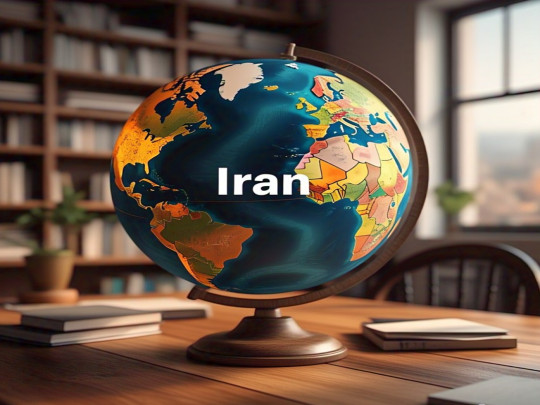Iran Cancels Nuclear Talks with US Amid Escalating Conflict
Iran abruptly cancelled planned nuclear talks with the US in Oman after Israeli airstrikes targeted key Iranian sites, escalating regional tensions and derailing months of diplomatic efforts. The move heightens fears of broader conflict and injects fresh uncertainty into the future of Iran’s nuclear program.

The latest round of nuclear negotiations between Iran and the United States, scheduled for Sunday in Muscat, Oman, has been abruptly cancelled. This decision follows a dramatic escalation in hostilities between Israel and Iran, with Tehran citing ongoing Israeli military strikes—allegedly backed by Washington—as the primary reason for withdrawing from the talks. The development marks a significant setback for diplomatic efforts aimed at curbing Iran’s nuclear program and stabilizing the broader Middle East.
A Diplomatic Setback
The Oman-mediated talks were intended to be the sixth round of indirect negotiations between the US and Iran over Tehran’s nuclear ambitions. For months, Oman has played a crucial role as a facilitator, encouraging both sides to pursue dialogue despite mounting regional tensions. However, on Saturday, Omani Foreign Minister Badr al-Busaidi announced on social media that the planned meeting “will not now take place,” while reiterating that “diplomacy and dialogue remain the only pathway to lasting peace”.
The cancellation comes in the wake of Israel’s largest military operation against Iran to date. Israeli airstrikes targeted Iranian nuclear and military facilities, resulting in the deaths of several high-ranking officials, including military commanders and nuclear scientists. Iranian authorities claim that these attacks were carried out with direct support from the United States, a charge Washington has strongly denied.
Iran’s Position: Talks “Meaningless” Under Fire
Iranian officials have described the prospect of negotiations as “pointless” and “unjustifiable” while their country is under attack. Esmaeil Baghaei, spokesperson for Iran’s foreign ministry, stated, “The other side [the US] has acted in a manner that renders dialogue futile. One cannot assert the intent to negotiate while simultaneously facilitating the Zionist regime [Israel] in assaulting Iran's land”. President Masoud Pezeshkian echoed this sentiment, declaring that Iran would not accept “irrational demands under pressure” or sit at the negotiating table while Israeli strikes continued.
Foreign Minister Abbas Araghchi reinforced this stance, stating that Iran would not participate in talks as long as the “barbaric” assaults persisted. In a call with European Union officials, Araghchi insisted that negotiations were “unjustifiable” under the current circumstances.
US and Israeli Responses
The United States has categorically rejected Iran’s accusations of complicity in the Israeli strikes. During a United Nations Security Council session, US officials suggested that Tehran would be “wise” to engage in talks concerning its nuclear activities, emphasizing that diplomacy remains the preferred solution. President Donald Trump, while praising the Israeli strikes as “excellent,” has also warned Iran that continued escalation could lead to devastating consequences, urging Iranian leaders to seize what he called a “second chance” to avoid further destruction.
Israel, for its part, has justified its actions as “pre-emptive” measures to prevent Iran from acquiring nuclear weapons. The Israeli government maintains that weapons of mass destruction in Iranian hands pose an existential threat not only to Israel but to the wider world. Israeli Prime Minister Benjamin Netanyahu has vowed to continue military operations “for as many days as necessary” to neutralize the perceived threat.
Regional and Global Implications
The cancellation of the nuclear talks has heightened fears of a broader regional conflict. The Israeli strikes have not only targeted military and nuclear sites but have also impacted Iran’s critical energy infrastructure, including a major natural gas processing plant. Iran has warned that it may consider closing the Strait of Hormuz, a vital chokepoint for global oil shipments, if hostilities escalate further.
The violence has resulted in significant casualties. Iranian sources report that at least 78 people were killed on the first day of Israel’s campaign, with many more wounded in subsequent attacks, including a devastating missile strike on a residential building in Tehran. Iran retaliated with missile and drone attacks on Israeli targets, killing at least three people and prompting further counterstrikes.
Domestic Sentiment in Iran
Despite the intense pressure, the mood in Iran appears defiant. According to Hamed Mousavi, a political science professor at Tehran University, many Iranians view the pursuit of nuclear talks as futile while under bombardment. “The Israelis effectively destroyed the diplomatic solution, and what was unexpected was the extent of American coordination with the Israelis in this matter. Therefore, I find it improbable that negotiations will proceed,” Mousavi told Al Jazeera. He added that there is little sign of domestic unrest or sympathy for Israel among the Iranian public.
The Path Forward
With diplomacy at a standstill and military actions intensifying, the prospects for a peaceful resolution to the crisis remain uncertain. Oman and other mediators continue to urge both sides to return to the negotiating table, but for now, the shadow of war looms large over the region. As the situation evolves, the international community watches closely, aware that the stakes—regional stability, global energy supplies, and the future of nuclear nonproliferation—could not be higher.



